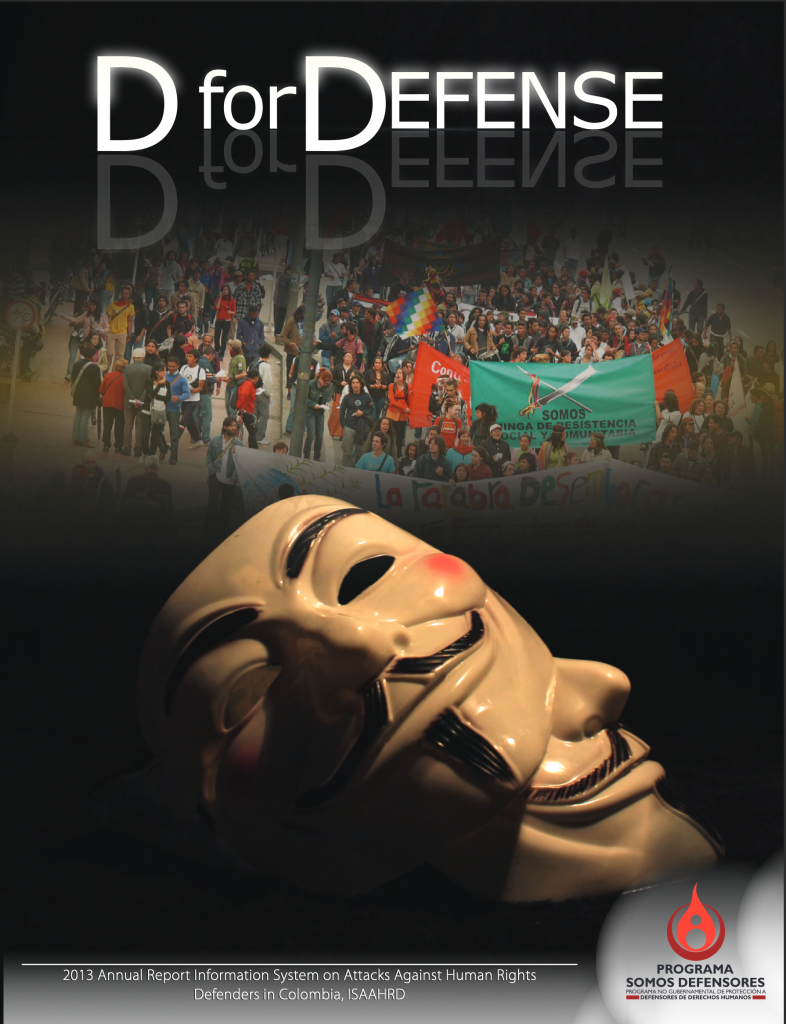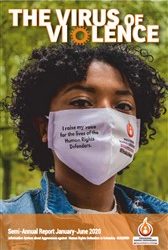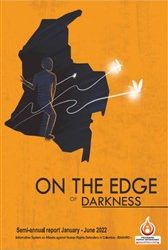
The year 2013 was one of paradoxes. The government continued peace negotiations with the Fuerzas Armadas Revolucionarias de Colombia (FARC) in Havana, Cuba; maintained its discourse promoting recognition of the victims of the armed conflict and the advances in the land restitution process; and pushed society as a whole to accompany peacebuilding efforts to definitively end this national bleeding that is the armed conflict. At the same time, government ministers did the exact opposite: the Ministry of Defense increased its military actions in many parts of the country; strengthened military foci in areas of consolidation; violently repressed social protest; and increased the military budget, from $11.5 billion USD in 2013 to $13 billion USD in 2014. It also presented legislative initiatives to strengthen laws that attack human rights, such as the Law of Citizen Security.
A similar situation took place with the Ministry of Agriculture, which confronted a strong challenge with the Agrarian Stoppage protests. Contrary to the petitions of agricultural sectors and actors, who looked to make the Ministry more committed to peasant causes, the President handed the buck over to an African Palm businessperson and large landowner. Analogous situations occurred in other economic areas with the Free Trade Agreements (FTAs) and the exploitation of energy and mining resources. In other words, during 2013, the national government showed its double agenda of “carrot and stick,” as a plan to win with both heads and tails.
In the middle of this panorama, the work of human rights defenders and social leaders, especially in highly conflictive areas, like Antioquia, Cauca, Nariño, Valle del Cauca, and Córdoba, amongst others, was attacked, as the statistics in this annual report on attacks against human rights defenders show.
Therefore, and as is custom, the report shows the levels of attacks against human rights activists in Colombia during the whole year. These attacks include murder, physical attacks, threats, disappearances, arbitrary detentions and the theft of sensitive information. Also covered are the presu med responsible attackers, the most vulnerable social sectors and those most affected by sociopolitical violence.
In 2013, the determining contextual events include the social mobilizations, by peasant, agricultural and indigenous organizations, who resist the destruction of their territories due to largescale mining and energy policy. This is just one part of the adverse environment in which human rights defenders work throughout the country.
We would like to thank the organizations associated with the Colombia, Europe and United States (CCEEU, in Spanish) platform, to the National Movement of Victims of State Crimes (MOVICE) and the other social, afro-colombian, women’s, indigenous, peasant, young people’s, cultural and union organizations, for their work and their opportune information to be able to track the attacks against human rights defenders. Also, we would like to thank the Office of the United Nations High Commissioner for Human Rights in Colombia.
We would like to extend our gratification to the international cooperation agencies that continue to support the political goal of a human rights culture in Colombia, like MISEREOR, Diakonia – Sweden, Oxfam, Amnesty International, Terre des Hommes – Basilea, Terre des Hommes Switzerland and the United Nations Development Program (UNDP), who all with their trust and support, make the tracking done by the Information System on Attacks Against Human Rights Defenders (ISAAHRD) possible, support threatened human rights defenders and provide protection and self-protection measures for their organizations.





